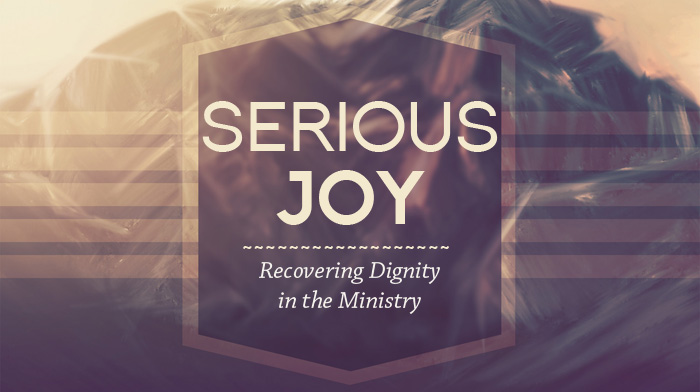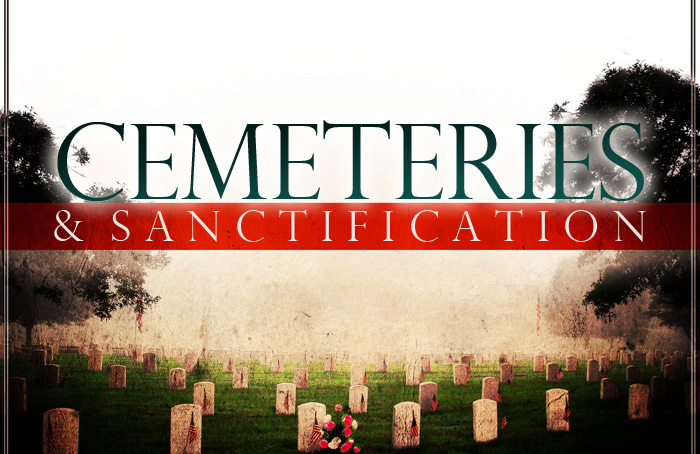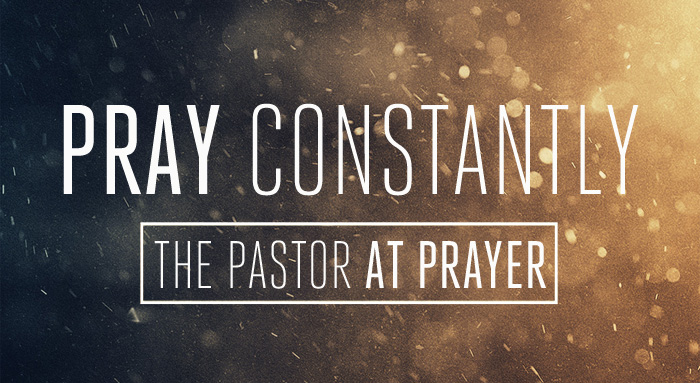
Healthy pastors are growing pastors. And growing pastors are those regularly increasing in the grace and knowledge of our Lord Jesus Christ.
What are you doing to grow in the knowledge of Christ?
The ordinary means of grace (word, prayer, sacrament) are the non-negotiables of growing in Christ. They are the spiritual waters for the soul, you can’t go very long with them and survive. And just like every person’s diet builds on the foundational need of water so too must a pastor’s spiritual feast include various and more occasional means.
I want to highlight just one item you might welcome to the table of your soul: the University of iTunes.
A HIDDEN GEM
Do you make use of iTunes U? When Apple revamped iTunes U in 2012 it was already reaching over 700 million downloads. A tech magazine said, “It has always been one of iTunes’ hidden gems, providing access to lectures, course material, presentations and more from top universities. Today, iTunes U is offering over 500,000 free lectures, videos, books and other content from institutions across 26 countries, says Apple.”
In recent years a few seminaries (particularly Covenant Theological Seminary, Westminster Theological Seminary, Reformed Theological Seminary, and Dallas Theological Seminary) have seized on this educational opportunity and are putting whole courses on iTunes U for free download. Pastors, church leaders, and interested lay members can now listen to gifted teachers and legendary professors without leaving their home and without emptying their bank account. These free courses are a treasure trove for pastors continuing their education and growth in biblical/theological/historical/practical knowledge. Make sure to check out everything offered from the seminaries above, but here a few courses you’d be silly to pass up:
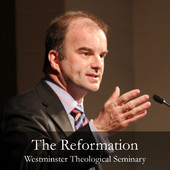 The Reformation by Carl Trueman. There isn’t anyone from whom I rather learn church history than Carl Trueman. His wit, wisdom, and piercing conclusions make him one of the few professors we could rightly label “Maddeningly Brilliant.” Few eras of church history are as interesting and pivotal as the decades occupied with the Reformation. This course offers 33 lectures on everything from Luther, to Calvin, and on to the English Reformation.
The Reformation by Carl Trueman. There isn’t anyone from whom I rather learn church history than Carl Trueman. His wit, wisdom, and piercing conclusions make him one of the few professors we could rightly label “Maddeningly Brilliant.” Few eras of church history are as interesting and pivotal as the decades occupied with the Reformation. This course offers 33 lectures on everything from Luther, to Calvin, and on to the English Reformation.
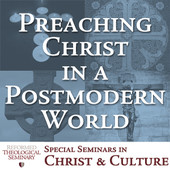 Preaching Christ in a Postmodern World by Tim Keller and Ed Clowney. Before everything “gospel-centered” was popular in broader evangelicalism, Clowney and Keller embodied everything soon to become in-vogue. Originally taught as a Doctor of Ministry course, Dr. Keller and Dr. Clowney ask, “Is Jesus made visible in every sermon or only talked about?” By analyzing and deconstructing other models of preaching that either exhort on moral levels or attempt to evoke an emotional response, Dr.’s Keller and Clowney provide a model of preaching that is Christocentric. This model of preaching focuses on three aspects to guide the listener and preacher: First, how does this text tell me about Christ? Second, how does this text show that the listener’s life is poor without Christ. Third, how to lead the listener to worship and adore Christ.
Preaching Christ in a Postmodern World by Tim Keller and Ed Clowney. Before everything “gospel-centered” was popular in broader evangelicalism, Clowney and Keller embodied everything soon to become in-vogue. Originally taught as a Doctor of Ministry course, Dr. Keller and Dr. Clowney ask, “Is Jesus made visible in every sermon or only talked about?” By analyzing and deconstructing other models of preaching that either exhort on moral levels or attempt to evoke an emotional response, Dr.’s Keller and Clowney provide a model of preaching that is Christocentric. This model of preaching focuses on three aspects to guide the listener and preacher: First, how does this text tell me about Christ? Second, how does this text show that the listener’s life is poor without Christ. Third, how to lead the listener to worship and adore Christ.
 The English Puritans by JI Packer. 20 or so hours of Packer riffing on the Puritans? What a gift! This course is an introduction to the English Puritans that includes an examination of historical context, theological contributions, cultural and community impact, and literary output of several prominent Puritan thinkers. Both informative and engaging, this course invites you to set aside the typical Puritan stereotypes and embrace the lives and legacies of some of the greatest minds and preachers in Church history.
The English Puritans by JI Packer. 20 or so hours of Packer riffing on the Puritans? What a gift! This course is an introduction to the English Puritans that includes an examination of historical context, theological contributions, cultural and community impact, and literary output of several prominent Puritan thinkers. Both informative and engaging, this course invites you to set aside the typical Puritan stereotypes and embrace the lives and legacies of some of the greatest minds and preachers in Church history.
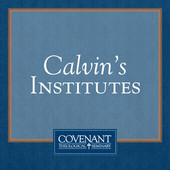 Calvin’s Institutes by David Calhoun. Dr. Calhoun is too little remembered in many circles today. He is a master of his field and a consummate teacher. The Professor Emeritus of Church History at Covenant Seminary guides this course in the reading and analysis of Calvin’s Institutes of the Christian Religion, emphasizing the Reformer’s method, material arrangement, and biblical-theological content.
Calvin’s Institutes by David Calhoun. Dr. Calhoun is too little remembered in many circles today. He is a master of his field and a consummate teacher. The Professor Emeritus of Church History at Covenant Seminary guides this course in the reading and analysis of Calvin’s Institutes of the Christian Religion, emphasizing the Reformer’s method, material arrangement, and biblical-theological content.
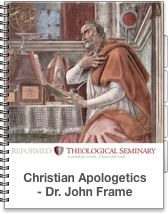 Christian Apologetics by John Frame. This one is for all you who love defending the faith – which should be all of us. In this course John Frame, The Triperspectivalist himself, seeks to formulate the rational basis for believing in Christian theism, with responses to objections and critiques of competing worldviews. In the first part, the student examines what Scripture says about human knowledge, particularly the process by which a non-Christian comes to know Christ. In the second part, the primary focus is on the controversy over how to do apologetics, with attention given to differing apologetic schools. Finally, the third part discusses issues under debate between Christians and non-Christians, such as the existence of God, the truth of Scripture, the problem of evil, and the currents of modern and postmodern thought.
Christian Apologetics by John Frame. This one is for all you who love defending the faith – which should be all of us. In this course John Frame, The Triperspectivalist himself, seeks to formulate the rational basis for believing in Christian theism, with responses to objections and critiques of competing worldviews. In the first part, the student examines what Scripture says about human knowledge, particularly the process by which a non-Christian comes to know Christ. In the second part, the primary focus is on the controversy over how to do apologetics, with attention given to differing apologetic schools. Finally, the third part discusses issues under debate between Christians and non-Christians, such as the existence of God, the truth of Scripture, the problem of evil, and the currents of modern and postmodern thought.
And just for grins . . .
 The Civil War and Reconstruction Era, 1845-1877 by David Blight. If you’ve ever wanted to get a sense of education at Yale University, here you go. Blight is a master lecturer and, I think, will keep anyone interested in this most fascinating and important era in our nation’s history. This course explores the causes, course, and consequences of the American Civil War, from the 1840s to 1877. The primary goal of the course is to understand the multiple meanings of a transforming event in American history. Those meanings may be defined in many ways: national, sectional, racial, constitutional, individual, social, intellectual, or moral. Four broad themes are closely examined: the crisis of union and disunion in an expanding republic; slavery, race, and emancipation as national problem, personal experience, and social process; the experience of modern, total war for individuals and society; and the political and social challenges of Reconstruction.
The Civil War and Reconstruction Era, 1845-1877 by David Blight. If you’ve ever wanted to get a sense of education at Yale University, here you go. Blight is a master lecturer and, I think, will keep anyone interested in this most fascinating and important era in our nation’s history. This course explores the causes, course, and consequences of the American Civil War, from the 1840s to 1877. The primary goal of the course is to understand the multiple meanings of a transforming event in American history. Those meanings may be defined in many ways: national, sectional, racial, constitutional, individual, social, intellectual, or moral. Four broad themes are closely examined: the crisis of union and disunion in an expanding republic; slavery, race, and emancipation as national problem, personal experience, and social process; the experience of modern, total war for individuals and society; and the political and social challenges of Reconstruction.


